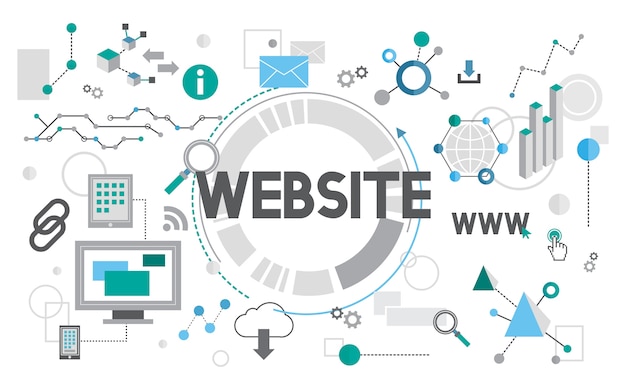Top And Unique Nanotechnology Benefits in modern world

Nanotechnologies have been constantly on the buzz in recent years, while the vast majority of ordinary people have a very vague idea about them. In the last decade, nanomaterials have become the main direction of promising technologies. What achievements can be noted in this area?
Solid-state devices, biochemical techniques, miniaturization, and the use of intelligent materials have made it possible to gain a much deeper understanding of how nanoscale materials behave and move on to the creation of functional materials and nanostructures based on them. The constant need to create improved, new materials, without using environmentally harmful and expensive chemical synthesis, further increases interest in the possibilities of nanostructures .. The vast majority of material performance improvements over the past five years have been related in one way or another to the use of nanostructures. With their help, the resistance of materials to mechanical, thermal and other loads, durability, transportability increase, the flammability index changes.
Nanotechnology is gradually proving its usefulness in the creation of high quality systems and materials. It can be assumed that in the near future the same nanotechnologies will prevail. Therefore, when choosing a private teacher for your child, ask if the math and physics tutor will pay due attention to the study of this aspect, even if it is practically not given due attention in the educational institution.
Another achievement of recent years in the field of nanotechnology is the production of aerogels in a gas-phase system , without an intermediate sol-gel state. This invention makes it possible to significantly reduce the cost of the airgel production process, as well as to expand the number of types of materials used. The new method for producing airgels also makes it possible to more effectively control the multilayer deposition process through the use of magnetic devices.
Thanks to nanoscale materials, the cost of production is reduced in almost all industries. They are already widely used, and, in the future, will be even more in demand in the automotive industry, the production of packaging and tools, and consumer goods. The low weight of nanomaterials can significantly save money on transportation, energy supply, and significantly reduce the polluting effect of production on the environment.
Abstract:
Nanotechnology enables new solutions with numerous civil and military applications. This paper provides an introduction to nanotechnology as a strategic area of research and production, presents trends that have the potential to be key influences, and examines related policy and security implications. As a conclusion, the author gives some policy considerations regarding the application of nanotechnologies in the field of security.
Introduction
The term nanotechnology refers to the creation of useful materials, devices and systems by manipulating matter on the nanometer (nm) scale, i.e. at sizes smaller than 100 nm, and the use of new phenomena and properties characteristic of such small sizes. To understand the challenges posed to technologies and materials by such size scales, Figure 1 shows several objects associated with aggressive downscaling. For example, isn't it surprising that today's 14nm metal oxide semiconductor field-effect transistors (MOSFETs) are smaller than viruses and form the basis of the switching element stack for all modern nanoelectronics enabling high-performance and mobile computing. In practice.
Even more important and surprising for the nanoscale is that the basic properties of macroscale materials often change dramatically when they are aggressively reduced in size. This concerns the characteristics of their electrical, mechanical, optical and chemical properties, which change by an order of magnitude, which gave rise to researchers to call these nanomaterials "wonder materials".
One-dimensional (1D) and two-dimensional (2D) materials have a relatively much larger surface area than the same mass of material in three-dimensional macroscale form, and quantum effects are much stronger when they are electrically conductive. Their chemical activity also changes. Many of the nanoscale materials (carbon nanotubes (CNTs), graphene, metal oxides, nanoceramics, etc.) acquire much higher mechanical strength than existing models of materials science for macroscopic scales suggest. For example, the Young's modulus of carbon nanotubes approaches that of a diamond, and their thermal conductivity is an order of magnitude higher. The reasons for all these dramatic changes lie in the world of quantum physics. Understanding, modeling and controlling the properties of matter at the nanolevel in order to create new nanosystems and nanomaterials with unsurpassed characteristics is one of the main challenges facing science in the 21st century.
On the other hand, since nanotechnologies involve manipulation at the atomic and molecular level, and the creation of artificial objects with exceptional properties at a dimensional scale invisible to human eyes, they become a source of controversy, in particular due to their impact on the fields of medicine and ecology. Sci-fi scenarios with self-replicating nanobots, threatening human life, and the fears associated with nanobioengineered (genetically modified) food have created some initially negative perception of nanotechnology. On the other hand, modern computer and mobile communication technologies are already using nanotransistors and quantum effects in silicon chips associated with the transport and storage of charges for information processing in all portable devices that do not pose any threat to consumers. On the contrary, consumers benefit from all the services provided by nanocomputing.
In the long term, the real promise of nanotechnology, as Ray Kurzweil predicts, is that "we will be able to create almost everything we need in the physical world from information files using very inexpensive raw materials."

Top 5 Automations to Use in Bookly
- In this article, well go through the top 5 Bookly automations that will help you manage your administrative workload and increase your productivity.

Crackle – Free Movies and TV shows for Android TV
- Entertainment often leaves us delighted and content. Not only does it help one to spend their leisure time relaxed

What is a WordPress Plugin? Simple Guidance 2022
- Assuming youre new to WordPress, you may wind up pondering, "what is a WordPress Plugin?".

22 Must-Read Tech Blogs for Content Creators
- Immerse yourself in the business side of technology with one of the most popular tech blogs that is still going strong in 2020.